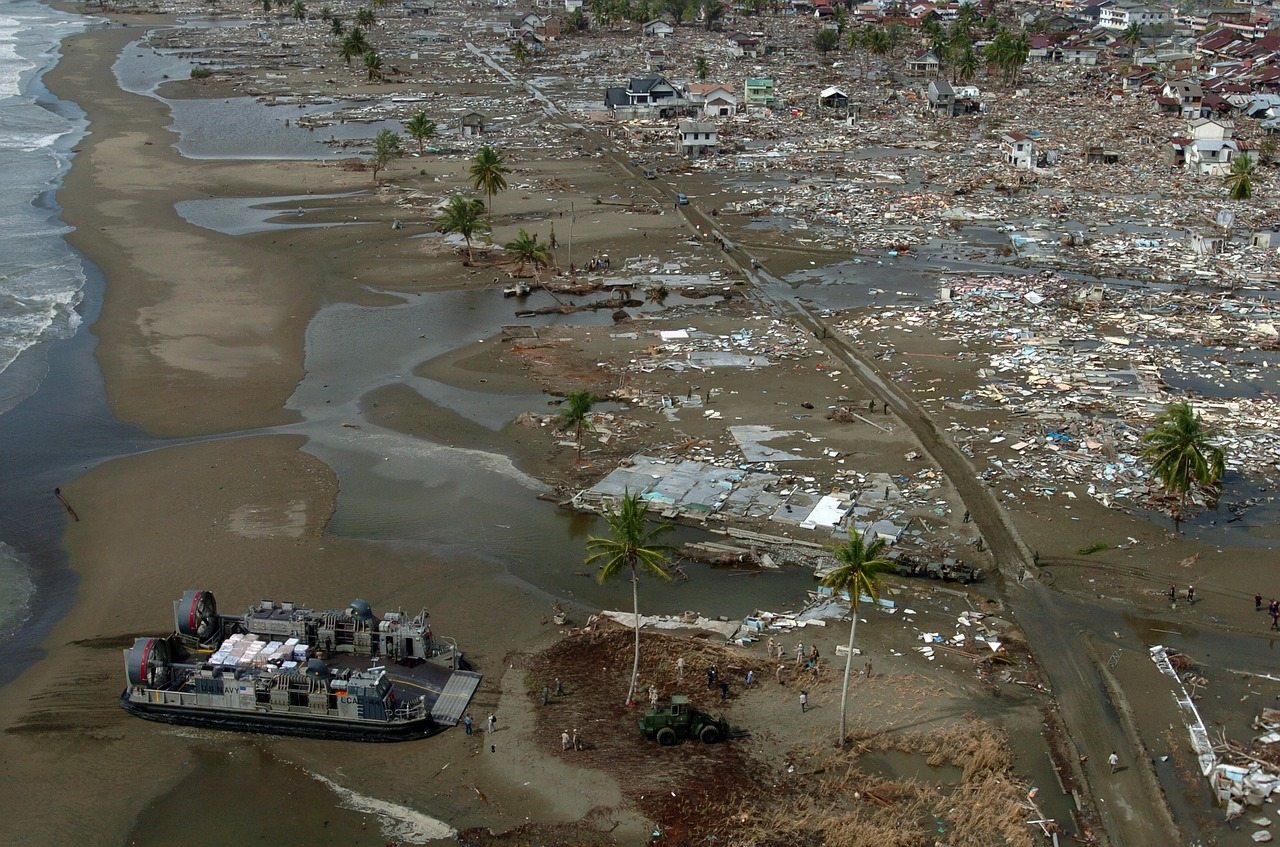HANDLING DISASTERS ABROAD
Before I go out the door, I like to know where I’m going. When people travel, some like surprises, such as discovering a shopping district or restaurant. but no one likes surprises that are in the form of a disaster. When I travel locally, like on my mountain bike for a ride in the foothills, it doesn’t mean I travel blindly. I want to have fun and for me that means minimizing discomfort when a disaster happens.
At a minimum, I always keep a first aid kit, water and a map on me just in case we get lost and need help.
If I travel abroad I’m as prepared as I can be. I can adjust if my travel bag went missing at the airport or I got a stomach ache from eating street food. Improvising comes naturally for people, I mean, what else can we do if we get stuck? But I’m always looking for the most sensible solution. What about being in a significant disaster? Who can really prepare for that? No one can be truly prepared but I owe it to myself and my family to not be completely in the dark.
Do we have a surface street route if the highways are closed?
Do we have an off-road route if the roads are closed?
Do we have a walking route planned if driving is impossible?
Do we have link-up points with other family members?
Do we have a relationship with our neighbors beyond the ‘hello’ greeting?
Will our neighbors check the safety of our homes if we can’t get back?
FIRST THINGS FIRST.
1. Know where you’re going.
Before I go abroad I go online and look at a hazard map. A hazard map is a map that highlights areas that are affected or vulnerable to a particular hazard. Many natural hazards like landslides, volcanoes, earthquakes and flooding are listed on a hazard map. These maps really do help you know what you could be up against. It’s not a bad idea to look up your region and see what disaster is typical for that area. Sure, I enjoy searching out the cool spots to eat at with my wife but I also learn the inherent problems for an area.
What’s the terrain like?
Does this region have Earthquakes?
When’s the last time there was Flooding?
How was the government response to the last Hurricane?
You don’t need to read every article but it’s wise to find out what disaster is typical for that region.
2. Prepare a disaster plan.
Now that you know where you’re headed, figure out a plan of action in case something goes awry. Are you traveling with a partner? What would you do if you got separated? Who do you contact? Do not count on government agencies and emergency responders to respond right away. They may be overwhelmed.
3. Learn about your surroundings.
Learn what the emergency plan is if you’re staying at a hostel or hotel. Is there one? Look for two escape routes out of each room when you check in.
4. Have a Meeting Place.
And if you’re traveling with a partner and get separated during an emergency come up with at least two rally points that are within reasonable walking distance for you. Choices are your hotel, or even an information booth. Having a safe haven marked on a map is a good thing to share with others, like Hospitals, Police Stations, Clinics, Churches, an Embassy and Community Centers. Mark train stations, and airports as well. Keep a contact on speed dial at home in case your partner calls there and reports in.
5. Keep a Bag on hand.
This should include important information such as your emergency phone contacts, passport, and medical prescriptions. Plan on bringing a double supply of your prescription medicine, this way you won’t miss doses in case you become stranded.
Cash is always good to keep on hand. Just don’t stow all of it away in one place. Divide it up and place in different pockets and bags.
Lastly, an info list is helpful in case you’re injured. In many countries, emergency personnel have an excellent command of English and are trained to look for this information. They’ll know immediately how to contact the right person. Also, be sure to mark down the number for emergency services in each country you visit.


[…] If you are interested in foreign travel, you might also want to take a look at this article that describes how a father prepared his teenage daughter for a semester of study abroad. One more for you who have kids in college: Emergency Kits for College Students. You may also like Handling Disasters Abroad. […]